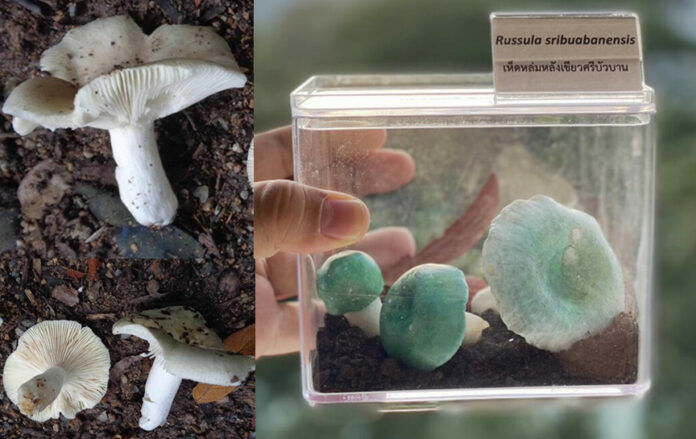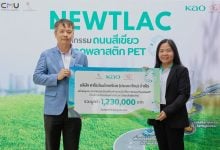Chiang Mai: Thai scientists discover edible mushrooms

A team of scientists from the Center of Excellence for Microbial Diversity and Sustainable Utilisation at Chiang Mai University has unveiled two new species of mushrooms— Russula pseudomodesta and Russula sribuabanensis, in northern Thailand.
Led by Dr Nakarin Suwannarat, Dr Jaturong Khamla, Professor Emeritus Dr Saisamorn Lamyong, and Dr Soumitra Paloi, the researchers, in collaboration with Prof Dr Samantha C. Karunarathna from Qujing Normal University in China, delved into the unexplored realms of fungal wonders.
Utilising a groundbreaking fusion of morphological and molecular methods, the team cracked the enigmatic code of these mushrooms. Armed with high-performance microscopy and DNA sequencing of key genes, including the RNA polymerase II (RPB2), the internal transcribed spacer (ITS), and the large subunit (LSU), they deciphered the genetic secrets of Russula pseudomodesta and Russula sribuabanensis.
These mushrooms, long part of the local culinary scene, had eluded accurate scientific identification until now. The results of the study not only confirmed their distinctiveness from other known Russula species but also revealed their edibility and a fragrance that sets them apart.
Found in the pristine forests of Chiang Mai University’s campus and the protected Siri Buaban village area in Lamphun province, these mushrooms are not just a feast for the senses but also potentially a source of medicinal properties, according to preliminary studies.
Yet, it’s not just about culinary delights and potential health benefits. The researchers’ findings align seamlessly with key Sustainable Development Goals (SDGs). Russula pseudomodesta and Russula sribuabanensis, being wild and edible, align with SDG 1—No poverty, by potentially becoming a source of income for local communities.
Moreover, these mushrooms contribute to SDG 2—Zero hunger, offering a rich source of protein and essential nutrients. As these findings unravel the mysteries of Thailand’s mushroom biodiversity, they also play a pivotal role in supporting the local economy, reported KhaoSod English.
These mushroom marvels, with their unique aroma and flavour, have quickly become a sought-after commodity, fetching a high price of 150 to 200 baht per kilogramme during the rainy season. Not only do they stimulate taste buds, but they also serve as a lucrative income source for local communities, creating a harmonious blend of nature’s wonders and economic sustainability.
Latest Thailand News
Follow The Thaiger on Google News:


























